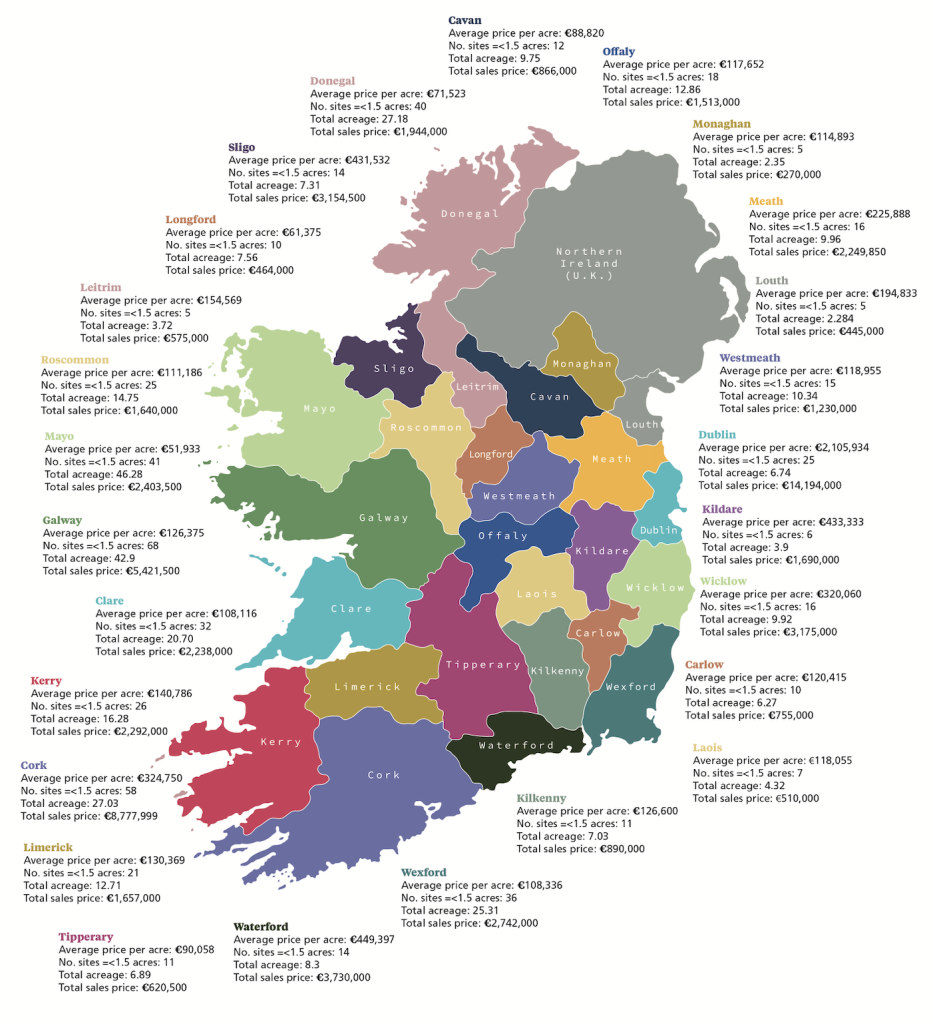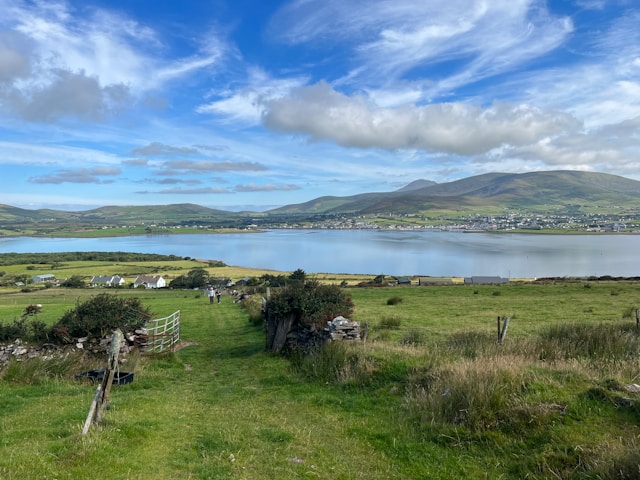From priciest to most affordable, Selfbuild looks at the cost land in each county of ROI in 2024, plus what you need to know about buying a site to build on.
In this article we cover:
- Average site prices from lowest to highest in ROI
- How easy is it to buy a site and build on it?
- How to find a site to build on
- How long does it take to buy a site
- Sites that are “subject to planning”
- Do you need an engineer if you buy a site
- How much stamp duty do you pay on a site
As house prices in Ireland continue to climb for the ninth month in a row, now might be an ideal time to explore the option of buying a plot of land and building your own home.
However, it’s crucial to understand that paying for a site can take up a substantial part of your total budget, including legal and registration fees. So, what are the average prices for building plots across the counties and Ireland as a whole?
Selfbuild analysed data from daft.ie site sale prices for 2023 to give you a rough idea of what you might expect to pay on average per acre, county by county*.
To aim for accuracy and avoid skewed figures, we focused on sites of up to 1.5 acres, excluding larger development sites that could distort average one-off site prices.
Cost of land 2024: Average site prices

Co. Waterford is the most expensive county to buy a site outside Dublin.
Based on figures extrapolated from Daft.ie data, the average sale price per acre of building sites in Ireland (excluding Dublin City and County) was €178,000 in 2023.
Co. Waterford saw the highest average sale price of building sites in Ireland (outside Dublin City and County), at €450K per acre. Dublin tops the list with an average price of €2,144,510 per acre.
On the other end of the spectrum lies Mayo, offering building sites at a fraction of the cost compared to Dublin and Waterford, with an average price of just €51,933 per acre. Following closely behind is Longford, where building sites are priced at an average of €61,375 per acre.
How easy is it to buy a site and build on it?
Anyone can buy a site in Ireland. However, there are regulations about how you can use the site, especially regarding zoning and planning permissions. Local authorities oversee these regulations, and if you’re not originally from the area, getting planning permission can be challenging.
How do I find a site to build on?
Individual building sites are not easy to find and you must work that bit harder to secure a good one. Here are some suggestions:
Register with estate and land agents, especially independents, in your desired area.
Contact local surveyors and architects as they often learn about new sites early. Use the internet to find private sales and listings from various estate agents.
Check national and local newspapers, though many properties are now listed online.
Explore the area on foot or by car to spot hidden For Sale signs and gather local information from shops, pubs, and post offices.
Knock on doors or write to homeowners, especially those with large gardens that could be potential building sites.
Monitor planning applications for sites with outline approval, as these can be purchase opportunities.
How long does it take to buy a site?
The process, known as conveyancing, typically takes 6-8 weeks. Hiring an experienced conveyancing solicitor can speed up the process.
How does buying a site “subject to planning” work?
If a site doesn’t have planning permission, you can include a “subject to planning permission” clause in the contract. This protects you if planning permission is denied. Your solicitor should help with this.
Do I need to get a survey from an engineer if I buy a site?
It’s advisable to get an environmental survey to check for soil contamination, flooding risks etc. This survey should be done by an expert post-sale agreement.
What about boundaries?
Have a surveyor confirm the site’s boundaries to avoid future disputes. Sometimes parts of the land may be restricted from development due to local regulations.
How much stamp duty do you pay on a site?
Stamp duty on a non-residential site is 7.5%. However, there is a refund scheme if you build a residential property within 30 months of purchase. For more details, refer to Revenue.ie.
*This is a rough guide to prices only; many factors can affect the price of a building site, regardless of where it is located, e.g., type and scope of planning permission, ground conditions, accessibility and services, proximity to services etc.
Notes: The analysis excludes sites that are POA (price on application); total data pool 1,000 sites FY2023 as supplied by daft.ie. Average prices = total sales price of the sites for sale divided by the total acreage of the sites for sale. Not enough data for NI to include in survey.









